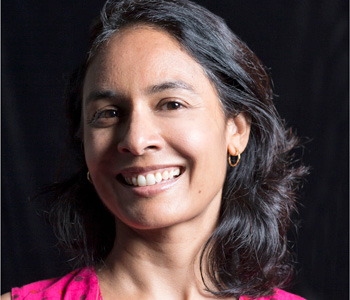
The Cuban Hustle documents the myriad ways in which ordinary Cubans have sought to survive, hustle, and invent alternative cultures in the twenty-year period following the collapse of the Soviet Union. Exploring the idea of the “hustle,” which draws on contemporary Cuban vernacular of luchar (to struggle), inventar (to invent), and jinetear (to hustle), I show how Cubans have devised alternative strategies for daily survival under conditions of shortage and how this spirit of creativity and imagination has been carried into Cuban cultural life.
In the post-Soviet period, the ongoing isolation of Cuba and the desperate need for outlets of expression, combined with the high quality of Cuban arts education, state funding for culture, and the new ideas flowing into Cuban society in the digital era turned the island into a crucible that fostered all kinds of dynamic cultures. In the book, I argue that conditions of scarcity have provided the impetus for a culture of spontaneous improvisation.
One unique feature of the book is that it is comprised of short essays that introduce the reader to a wide swath of Cuba’s subterranean cultures and social movements. The essays cover urban Black cultures such as rumba and hip hop; the feminist movement; new Cuban cinema; art collectives and public art; cultures of documentary filmmaking; the Weekly Packet, or, the Cuban version of the internet; the Afro-Cuban movement; children filmmakers in a Cuban rural town; and a hairdressers’ project for social change. There are reflections on the urban barrios, the Cuban response to 9/11, US attempts to infiltrate Cuban cultural movements, the death of Fidel Castro, and relations between Afro-Cubans and African Americans.
The first essay in the book tells the story of my first trip to Cuba in 1998, and my stay with Afro-Cuban artist Agustín Drake in the town of Matanzas. In response to my frustrations with the stasis that seemed to pervade Cuban society, Drake gave me a tour of the city. He showed me how it has evolved historically and how we can see it from many different perspectives. “When you are in one particular place, you can’t see some things,” he told me. I would like the reader to approach my book this way, with an open mind to seeing and appreciating Cuba from a multitude of angles.
I mentioned earlier the key idea of the Cuban hustle that frames the book. It is this culture of invention and everyday hustle that has helped maintain the spirit of the Cuban people over the past several decades. I see the Cuban hustle as not only an everyday practice for getting by, but an ethos that is part of a long history, dating back to the colonial era, of aspirations for social justice and the fashioning of modes of survival and expressive cultures that would be part of the long fight. To speak of it in the Western individualist terms of entrepreneurialism is to misrepresent something far more rooted in histories of collective struggle.
There is an emphasis in the book on antiracist movements in Cuba and, in particular, forms of Black cultural expression such as hip hop and visual arts. This is because among the inequalities that became more visible during the 1990s, racialized poverty was at the fore. This was especially glaring in a society that had at its core the promise of lifting up the most marginalized and eliminating racism. As Black Cubans were more likely to be stuck in the stagnant state sector, with few opportunities or capital for setting up small businesses and little access to the tourism industry, they began to see once again the need for independent self-organization. The critiques were first articulated in cultural forms such as hip hop, by Black youth who felt shut out from both the gains of the revolution and the promises of the new Cuba. Throughout the periods of acute crisis, normalization and into the contemporary period, Black Cubans have asserted their demands of inclusion and equality.
Another feature that I focus on in the book is the relationship between cultural movements and states/markets. The global culture industry has opened up possibilities for addressing marginalized themes such as race and sexuality, while also introducing new market logics into the production of Cuban culture. Transnational NGOs and cultural movements such as feminist organizations and hip hop culture shaped emerging feminist and antiracist movements on the island. These movements are also marked by their negotiation with state institutions, which has made available new channels for accessing power while delineating the boundaries of acceptable criticism. Cubans have navigated the tricky labyrinths of the global market and the state to tell their stories in all of their richness, humor, and boldness. This includes visual artists and emcees who took to public spaces such as shopping malls and street corners to stage performances and documentary makers using digital cameras to tell stories of struggling farmers in the Sierra Maestra mountains.
This book comes out of my long-term engagement—personal, artistic, professional, and political—with Cuba for the past twenty years. I first visited Cuba as a young socialist activist wanting to see how socialism worked in practice, and as an emcee who performed with Cuban artists. I ended up returning to Cuba for long stints to research my PhD dissertation and then my first book, Cuba Represent!, an ethnography of the arts in Cuban society. I later wrote another book Close to the Edge, a memoir of my experiences with Cuban hip hop artists and other hip hop communities around the globe. Even after writing those books, I continued to visit Cuba and write stories and essays about Cuban cultural movements for outlets like The Nation. So it made sense to share all of these experiences over a twenty-year period with a broader readership.
I hope readers who encounter the book at a bookstore might flip to the back of the book and see the ingenious and creative projects Cubans are creating, even in the dark days of the Trump era. We hear so much about the poverty and shortages induced by the tightened sanctions of the Trump administration, but I would also want people to see the ways that Cubans created a culture of resistance against the isolation that Trump tried to impose on the island. In recent years, a hairdressing school in the Old Havana barrio of Santo Ángel has involved its students in organizing activities for the children and seniors of the neighborhood. Young children filmmakers in the rural town of La Conchita made a documentary about the imminent closure of a factory that was the lifeblood of their community. Unlike their counterparts in the West, Cuban teenagers do not have unlimited apps and games to distract them on their phones; this group made their own fictional pieces and documentaries about the stories of their communities.
What many of these cultural phenomena share is a broader concern with social justice. Even when propelled by global markets and NGOs, cultures take on their own local shape, oriented toward the community. This is the legacy of the ideals, educational systems, and shared ethos of the Cuban Revolution. Cultural art forms have been closely connected with the development of social movements in Cuba. Afro-Cuban artists and hip hoppers used their art to raise issues of race and racism in Cuban society. They sowed the seeds for a rich array of racial justice organizations in the new millennium, such as ARAAC, the Red Barrial, and Alianza Unidad Racial. Artists have been at the forefront of social justice initiatives. Organizations such as Color Cubano and Magín have been led by artists, poets, and writers. The musician Silvio Rodríguez embarked on a tour of marginalized barrios to share his music with residents and understand their everyday struggles.
I hope that the book encourages people to see beyond Western media representations of Cuba. The media has been preoccupied with the idea of Cubans as trapped within a one-state autocracy, yearning for political and consumer freedoms unavailable to them. Cubans are generally depicted as repressed entrepreneurs: a world of small businesspeople, dissidents, bloggers, and others who want freedom of speech and freedom of commerce. The progression of Cuban society is its journey toward capitalism, the evolution of Cubans to become more like us. Such representations betray a deep failure to understand Cuba on its own terms.
There are many trajectories and models that loom large in the worldviews of Cubans, from the Black Radical tradition in the United States to the model of Chinese market socialism and the Pink Tide revolutions that swept Latin America. Some want more space to speak out critically or engage in commercial activities. And the growing presence of corporations such as Airbnb and Netflix is fostering new capitalist rationalities. But we must also understand the ways that consciousness and modes of being are deeply shaped by values of collectivism, egalitarianism, and voluntarism, derived from the socialist and post-independence past.
We hear much about Cuba’s transition. These essays depict a society in transition, but not necessarily one that is moving in a unilinear direction toward an embrace of capitalism. Rather, they reveal a range of utopic and liberatory visions that often take a socialist worldview as the horizon of the taken-for-granted, while also reflecting the multiple influences that have come to play a role in Cuban society from antiracist, anticapitalist, feminist, and LGBTQ movements to open-source information sharing, gamer culture, rock, hip hop, and reggae.


Sujatha Fernandes is a writer and professor of political economy and sociology at the University of Sydney. Fernandes is the author of Cuba Represent! Cuban Arts, State Power, and the Making of New Revolutionary Cultures (Duke, 2006); Who Can Stop the Drums? Urban Social Movements in Chávez’s Venezuela (Duke, 2010); Close to the Edge: In Search of the Global Hip Hop Generation (Verso, 2011); and Curated Stories: The Uses and Misuses of Storytelling (Oxford, 2017). Her latest book entitled, The Cuban Hustle: Culture, Politics, Everyday Life (Duke, 2020), is featured in her Rorotoko interview.